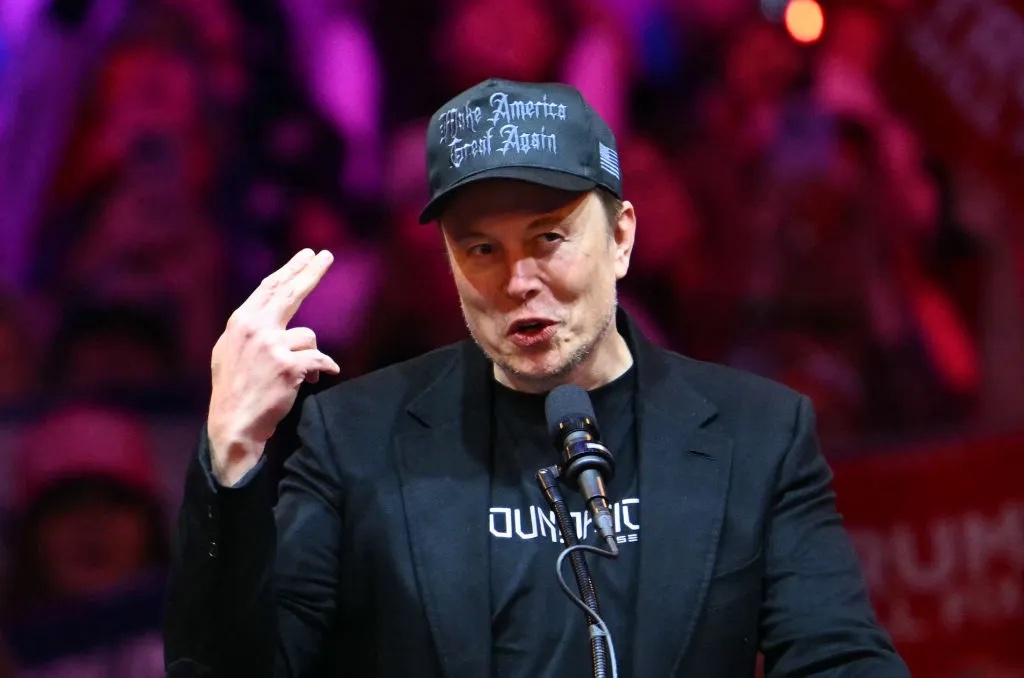Conservatives are taking a lot of heat these days regarding masculinity. David French in a recent piece at The Atlantic criticized Josh Hammer, David Azerrad, and Donald Trump, among others, for promoting what French labels a false view of manliness — namely, one that is unafraid to speak unpopular truths regardless of the consequences. It is a farcical “Trumpist toughness” that “treat[s] Twitter as their Omaha Beach.”
Washington Post columnist Christine Emba, meanwhile, recently mocked Republican Senator Josh Hawley for being a “champion of masculine virtue” but failing “to engage more deeply on the level of policy and ideas.” She cites, among other things, Hawley’s silence on paid parental leave and an “unwillingness to acknowledge a democratically elected president” as derelictions of the manly virtues conservatives promote.
Emba offers an unexpected text to reprimand Hawley and other conservatives for their “warped understandings of manhood”: John Henry Cardinal Newman’s “The Definition of a Gentleman,” which appears in the eighth discourse of his The Idea of a University. She provides three gentlemanly traits highlighted by Newman, which might best be summarized as self-control, humility, and charity. The gentleman “throws himself into the minds of his opponents, he accounts for their mistakes,” writes Newman.
Given that Newman is an intellectual beloved by conservatives both Catholic and Protestant, it’s worth considering his conception of the gentleman and its relevance for contemporary society and politics.
“It is almost a definition of a gentleman to say he is one who never inflicts pain,” Newman begins. The true gentleman “carefully avoids whatever may cause a jar or a jolt in the minds of those with whom he is cast.” He is tender, gentle, and merciful; “seldom prominent in conversation”; and “never speaks of himself except when compelled.” He rejects slander and gossip, “is never mean or little in his disputes,” and “has too much good sense to be affronted at insults, and too indolent to bear malice.”
So far, admittedly, this sounds about the opposite of Trump and the many male politicians most closely associated with his brand of politics, such as Paul Gosar and Matt Gaetz.
The gentleman is “patient, forbearing, and resigned,” exercises a “disciplined intellect,” and is “too clear-headed to be unjust.” He “respects piety and devotion,” and “honours the ministers of religion.” These traits, says Newman, are the “lineaments of the ethical character, which the cultivated intellect will form, apart from religious principle.” Because these qualities are accessible even to the unreligious, they are thus universal.
They are also, I would argue, generally good and noble principles by which men should live. Yet does that mean they are sufficient for public life (and survival) in a political climate defined by a relentless 24-hour news cycle and a digital age driven more by provocative “hot takes” and memes than thoughtful commentary? Political success today is driven less by the ability to demonstrate uncompromising virtue and prudent statesmanship than the capacity to deliver a slick and clever brand of clever self-promotion, while effectively maligning one’s opponents as “radical” if not evil. (There are a few outliers to this trend, which perhaps offers a glimmer of hope for the republic.)
What is a male politician to do given such circumstances? Trump in 2016 outmaneuvered all sixteen of his primary opponents, sometimes by well-timed (and long overdue) rejections of Republican establishment platforms (e.g. interventionist foreign policy), but just as often by ad hominem and mockery. Would the exercise of a detached restraint and charity that refused to indulge Trump’s blistering rhetorical assault have played well for justifiably frustrated American voters, especially the many millions who evaluate their politicians via a technological medium they associate with entertainment and endless distraction? Such an approach would seem more reminiscent of a stoic British aristocrat than an American running for national office.
I don’t like this any more than I presume Newman would. I hate what television, the internet, and social media have done to both politics and public discourse. I am perhaps one of the few American voters remaining who gets practically all my political news and commentary via print newspapers and magazines. But I am also realistic about what factors have the most influence over our political debates and elections. Sadly, it is not the gentlemanly qualities of humility, self-restraint, and charity, but the loud and controversial ones, like, contra Newman, being ever eager to cause a “jar or a jolt.”
That said, French, Emba, and other critics of contemporary manifestations of “masculinity” have a point — what counts as male strength does often tend toward the absurd and performative. Dan Bilzerian, the “King of Instagram,” who flexes his faux-masculinity through photos of firearms and scantily-clad women, turned tail and ran during the 2017 Las Vegas shooting. Men who haven’t spent a day in boot camp or a war zone empty their wallets to buy tactical gear they will never have any actual need to use. And trying to signal one’s toughness on Twitter and YouTube is oxymoronic, to say the least.
It is appropriate to rebuke these “live action role play” versions of male virtus, which has very little to do with authentic masculinity. But what does? Are the left’s answers any more risible and unrealistic? Indeed, the now unquestioned dogma of the Democratic Party is that biological men can be women and biological women can be men. In such a topsy-turvy world, what does being authentically male or female even mean?
We need political policies (and cultural narratives) that articulate an authentic vision of masculinity that is biologically and rationally coherent and correlates to time-tested traditions and truths regarding male-female difference. That means, as a start, rejecting transgender ideology that seeks to enshrine laws and regulations that further confuse and obscure real sexual difference. It means acknowledging that there are certain biological and sociological reasons that only men serve in combat roles. And it means declaring that children need both mothers and fathers to enjoy a healthy and stable upbringing.
It is very easy to find examples of males doing and saying stupid things as part of an attempt to assert their relevance and importance. But the very fact that so many are doing this is suggestive of the tenuous state of American manhood, a phenomenon even Emba acknowledges. Yet the epidemic of self-destructive sexual addictive behaviors is a little bit more severe than a “surfeit of pornography,” as Emba calls it. We are witnessing the precipitous decline of the American male, and the consequences will increasingly be felt by the very same women who patronizingly ridicule or use them. What Hammer and Azerrad admire in men like Trump — such as a courageous willingness to speak unpopular, taboo truths — is, pace French, a masculine quality, one all the more acutely needed now.
Liberals like Emba and “conservatives” like French who are devoting their energies to finger-wagging would do better to drop the attempts at sophisticated nuance (“yes, there’s a problem, but…”). They should acknowledge that if an entire sex is suffering educational, economic, and cultural paralysis, what is at stake is the very survival of republican government. For the more that a significant portion of the male population feels scorned and marginalized by an insulated technocratic elite, the more they will either tune out or be driven to dangerous extremes.
The left must encourage men to “man up” and accept the duties of work, marriage, and fatherhood. And if they also want to reverse the sociological and technological developments that have vitiated the vision of the true gentleman as understood by Newman, I’ll be happy to lend a hand.

























